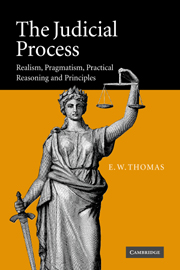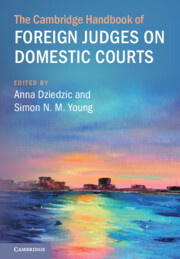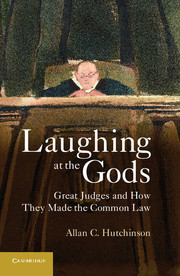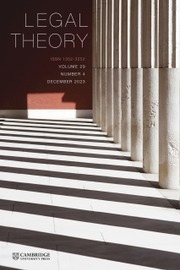The Judicial Process
In the absence of a sound conception of the judicial role, judges at present can be said to be 'muddling along'. They disown the declaratory theory of law but continue to behave and think as if it had not been discredited. Much judicial reasoning still exhibits an unquestioning acceptance of positivism and a 'rulish' predisposition. This book, written by a practicing judge, dismantles these outdated theories and seeks to bridge the gap between legal theory and judicial practice. The author propounds a coherent and comprehensive judicial methodology for modern times.
- Written by a practising judge, this book offers a unique melding of legal theory and judicial practice from the standpoint of a practising judge
- Provides invaluable reading for: judges, as a means of enhancing their perception of the judicial role; lawyers, in providing a greater understanding of judicial adjudication; legal academics, in providing insights into judicial reasoning; and law students, as a comprehensive introduction to the judicial process
- Advances a coherent and comprehensive judicial methodology for the twenty-first century
Reviews & endorsements
"The Judicial Process is informative, thought-provoking and ... insightful."
The Law and Politics Book Review
Product details
June 2008Paperback
9780521066884
444 pages
229 × 152 × 25 mm
0.65kg
Available
Table of Contents
- Preface
- 1. Introduction
- 2. Muddling along
- 3. The curse of formalism
- 4. Legal fundamentalism
- 5. The idolatry of certainty
- 6. The piety of precedent
- 7. The foibles of precedent - a case study
- 8. There is no impersonal law
- 9. So, what is the law?
- 10. The constraints on the judiciary
- 11. Towards a new judicial methodology
- 12. Of realism and pragmatism
- 13. Of practical reasoning and principles
- 14. Taking law seriously
- 15. A theory of ameliorative justice
- Subject index
- Authors index.








